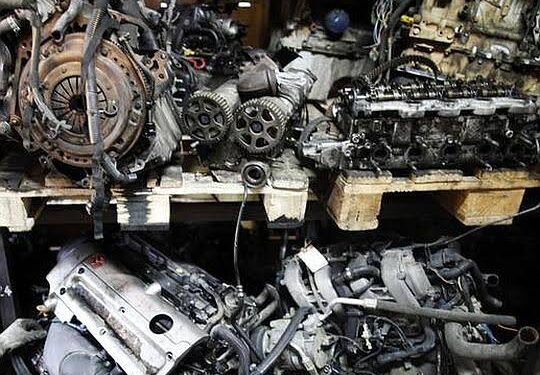The National Automotive Design and Development Council (NADDC) has taken further steps to address the over one billion dollars which the country lost due to importation of component parts of vehicles.
The NADDC Director-General, Joseph Osanipin said this at the training of some Engineers on Midas NFX Software Automotive Design Skills Boot Camp organised by the council on Monday on Abuja.
“The country spends over one billion dollars each year on imported spare parts.
“This massive expenditure underscores the urgent need for local production capabilities and advanced design training to reduce dependency on foreign imports and stimulate economic growth.
“This boot camp focused on Midas NFX software training aimd at empowering local engineers and designers with the skills necessary to create high-quality vehicle components,” he said.
According to him, Midas NFX is a sophisticated tool that enables users to scan parts, design them according to specific requirements, and select the optimal materials whether plastic or steel for production.
He said the software represented a crucial step in modernising Nigeria’s automotive manufacturing processes.
“The boot camp is designed not only for staff of the council but also for private entities that might lack the resources to access such training opportunities.
“With a target of training 100 individuals over the next year, the initiative aims to equip local assemblers and manufacturers with essential knowledge, bridging the gap between theory and practice.
“The only way we can bridge the gap is through knowledge. And through this programme we hope to foster innovation within the industry.
“The programme will not only enhance local expertise but also pave the way for the development of locally-produced spare parts, ultimately saving the country significant amounts of foreign currency,” he said.
Osanipin said while Nigeria had made strides in producing lubricants, there remained a vast potential in other vehicle components, such as batteries, brake pads, and filters.
He said the automotive aftermarket represented a significant economic opportunity, and harnessing local talent to design and manufacture these parts could stimulate job creation and enhance self-sufficiency.
” About 24 participants are set to be trained today and future plans are already in motion to expand this training initiative.
“By focusing on advanced technologies and adherence to production specifications, Nigeria aims to position itself competitively in the global market,”Osanipin said.
The Managing Director, FAZSAL Nigeria Limited, Dr Abdullawal Zubair, commended the NADDC boss for the opportunity he gave to the participants to engage in the software training.
“The D-G has provided this department with enough tools.You have 3D scanner, 3D printer, so you can print or produce anything as the 3D scanner you have is the best in the world,.
“I therefore urge the participants to judiciously utilise this opportunity to improve on their skills for their personal growth and the growth of the industry ” he said.
Also speaking, the Director, Directorate of Research Design and Development, NADDC, Dr Fidelis Achiv, reiterated the importance for value addition even as the country was engaging in the assembling vehicles.
While commending the director-general for hosting the training, he also urged the participants to utilise the training, and further train other Nigerians to ensure the growth of the industry.(NAN)











